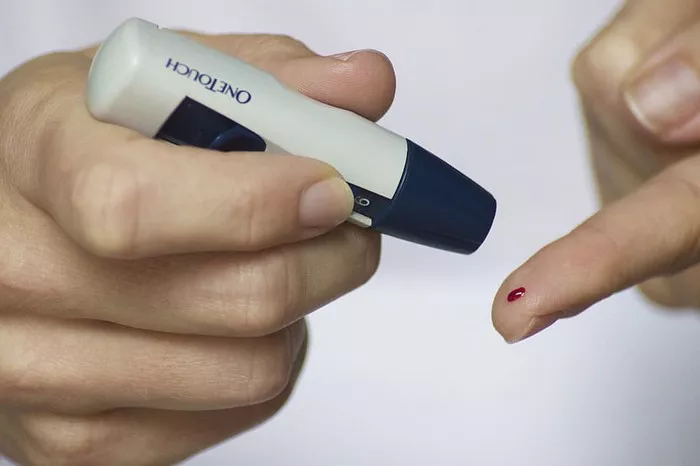When it comes to managing diabetes, nutrition plays a pivotal role. Among the macronutrients, carbohydrates often bear the brunt of criticism in diabetes management. However, carbohydrates are not the enemy; they are an essential component of a balanced diet, even for individuals with diabetes. In this article, we will explore the significance of carbohydrates in the diabetic diet, debunk common misconceptions, and provide practical guidance on incorporating carbohydrates wisely.
Understanding Carbohydrates
Carbohydrates are one of the three main macronutrients, alongside protein and fat. They are the body’s primary source of energy, providing fuel for vital functions such as muscle contractions, brain activity, and cellular metabolism. Carbohydrates are classified into three main types: sugars, starches, and fiber.
Sugars are simple carbohydrates found naturally in fruits, vegetables, milk, and dairy products. They are also added to many processed foods and beverages. Starches, on the other hand, are complex carbohydrates abundant in grains, legumes, and starchy vegetables like potatoes and corn. Fiber, the indigestible part of plant foods, is also a type of carbohydrate crucial for digestive health and blood sugar regulation.
Importance of Carbohydrates in the Diabetic Diet:
- Energy Source: Carbohydrates are the body’s preferred source of energy. For individuals with diabetes, maintaining stable blood sugar levels is paramount to prevent complications. Consuming an adequate amount of carbohydrates ensures that the body has a steady supply of glucose for energy, helping to prevent hypoglycemia (low blood sugar) and providing sustained energy throughout the day.
- Nutrient Density: Many carbohydrate-containing foods are rich in essential nutrients such as vitamins, minerals, and antioxidants. Fruits, vegetables, whole grains, and legumes are excellent sources of these nutrients, which are vital for overall health and well-being. By including carbohydrates in the diet, individuals with diabetes can ensure they receive a wide array of nutrients necessary for optimal functioning.
- Fiber and Digestive Health: Fiber, a type of carbohydrate found in plant foods, plays a crucial role in digestive health. It promotes regular bowel movements, prevents constipation, and may reduce the risk of developing certain digestive disorders, such as diverticulosis and colorectal cancer. Additionally, fiber helps to slow down the absorption of glucose, leading to more stable blood sugar levels after meals.
- Satiety and Weight Management: Including carbohydrates in meals and snacks can help promote feelings of fullness and satiety, which may aid in weight management. Fiber-rich carbohydrates, in particular, have been shown to increase satiety and reduce overall calorie intake, making them valuable for individuals with diabetes who are looking to achieve or maintain a healthy weight.
- Athletic Performance: For individuals with diabetes who engage in physical activity or sports, carbohydrates are essential for optimizing performance and supporting recovery. Carbohydrates serve as the primary fuel source during exercise, helping to sustain endurance and intensity. Proper carbohydrate intake before, during, and after physical activity can enhance performance, prevent fatigue, and facilitate glycogen replenishment in the muscles.
Debunking Common Myths
Despite the importance of carbohydrates in the diabetic diet, several myths and misconceptions persist. Let’s address some of the most common ones:
- Carbohydrates Always Spike Blood Sugar: While it’s true that some carbohydrates can cause rapid spikes in blood sugar, not all carbohydrates are created equal. The glycemic index (GI) and glycemic load (GL) of a carbohydrate-containing food influence its effect on blood sugar levels. Choosing low to moderate GI/GL carbohydrates and pairing them with protein, fiber, and healthy fats can help minimize blood sugar fluctuations.
- Carbohydrates Should Be Avoided Completely: Eliminating carbohydrates from the diet is neither practical nor advisable for individuals with diabetes. Carbohydrates provide essential nutrients and energy that the body needs to function optimally. Instead of avoiding carbohydrates altogether, focus on selecting high-quality, nutrient-dense sources and controlling portion sizes to manage blood sugar effectively.
- Only Sugar Matters, Not Starches: While it’s important to limit added sugars and sugary foods in the diabetic diet, starches also contribute to overall carbohydrate intake and can affect blood sugar levels. Choosing whole grains, legumes, and non-starchy vegetables over refined grains and processed starches can help stabilize blood sugar and provide valuable nutrients.
Practical Tips for Including Carbohydrates in the Diabetic Diet
- Choose Whole Foods: Opt for whole, minimally processed carbohydrates such as fruits, vegetables, whole grains, legumes, and nuts. These foods are rich in nutrients, fiber, and antioxidants, promoting overall health and well-being.
- Control Portion Sizes: Pay attention to portion sizes to manage carbohydrate intake and blood sugar levels. Use measuring cups, food scales, or visual cues to estimate appropriate portions, especially for foods with higher carbohydrate content.
- Combine Carbohydrates with Protein and Fat: Pairing carbohydrates with lean protein and healthy fats can help slow down digestion and minimize spikes in blood sugar. For example, enjoy apple slices with almond butter or whole grain crackers with cheese for a balanced snack.
- Focus on Fiber: Incorporate fiber-rich foods such as fruits, vegetables, whole grains, and legumes into your meals and snacks. Fiber helps promote satiety, regulate blood sugar, and support digestive health.
- Be Mindful of Sugary Beverages: Limit consumption of sugary beverages such as soda, fruit juice, and sweetened teas, which can contribute to rapid spikes in blood sugar and empty calories. Opt for water, herbal tea, or sparkling water flavored with citrus or herbs instead.
Conclusion
Carbohydrates are a vital component of the diabetic diet, providing essential nutrients, energy, and fiber necessary for overall health and well-being. By understanding the role of carbohydrates and making informed choices, individuals with diabetes can effectively manage their blood sugar levels, support their nutritional needs, and enjoy a varied and satisfying diet. Remember to focus on whole, nutrient-dense foods, control portion sizes, and balance carbohydrates with protein and fat for optimal health outcomes. Working with a registered dietitian or diabetes educator can provide personalized guidance and support in navigating carbohydrate intake and achieving dietary goals. Embrace carbohydrates as part of a balanced and fulfilling approach to diabetes management and overall wellness.
Related topics:
Essential Foods to Raise Low Blood Sugar Levels
A Comprehensive Guide to Managing Diabetes through Nutrition



























